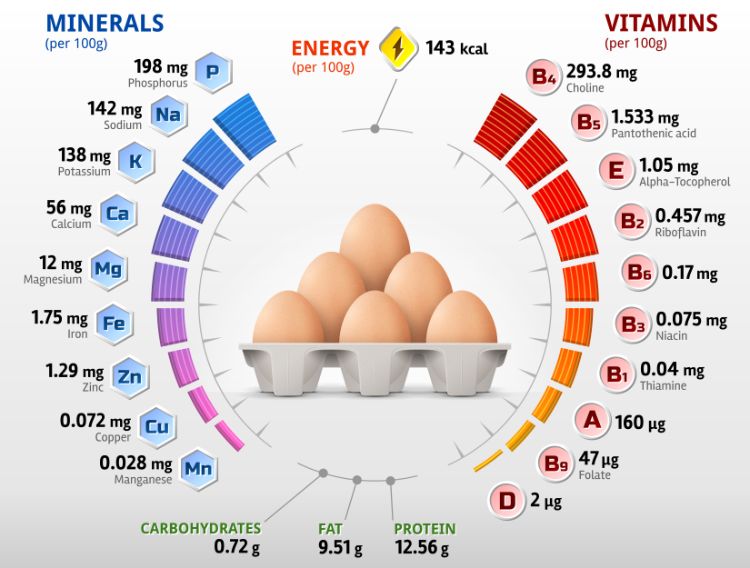Eggs have faced controversy over the years, with concerns raised about their cholesterol content and potential impact on heart health. However, many of these concerns are based on outdated or incomplete information. In fact, eggs provide a range of essential nutrients and can be a valuable part of a balanced diet when consumed in moderation.

Cholesterol and Eggs: The Real Story
It’s true that eggs contain a significant amount of cholesterol—around 180-186 milligrams per large egg, which is over half the recommended daily intake for most people. However, cholesterol from food does not necessarily lead to higher cholesterol levels in your bloodstream for everyone.
The body naturally produces cholesterol (about 1-2 grams per day), and when dietary cholesterol is consumed, the body adjusts by producing less. For most people, eating eggs has little effect on blood cholesterol levels. According to research, about 70% of people experience no significant change in their cholesterol levels from eating eggs, while the remaining 30% may see a slight increase in LDL (the “bad” cholesterol). However, even in these cases, the increase in LDL tends to be in larger, less harmful particles, which are considered less risky for heart health.
That said, individuals with certain conditions, such as diabetes, may need to be more cautious. Some studies suggest that regular egg consumption could be linked to a higher risk of heart disease for people with diabetes, but the evidence is not conclusive and more research is needed.
The Benefits of Eggs
Now that we’ve clarified the cholesterol issue, let’s explore the numerous benefits eggs offer:
1. Rich in Nutrients

Eggs are a nutrient-dense food, packed with vitamins A, D, E, B-12, as well as minerals like iron, calcium, and omega-3 fatty acids. These nutrients are essential for maintaining overall health, supporting vision, immune function, and bone strength.
2. High-Quality Protein

Eggs are one of the best sources of high-quality protein, containing all the essential amino acids your body needs. A single egg provides about 6 grams of protein, which is easily absorbed by the body. This makes eggs an excellent choice for muscle repair and maintenance.
3. Brain Health and Choline
Eggs are one of the best dietary sources of choline, a nutrient critical for brain health and memory function. Choline is especially important for pregnant women, as it helps in fetal brain development. Since many people do not get enough choline in their diet, eggs can help fill this gap.
4. Eye Health

Eggs contain the antioxidants lutein and zeaxanthin, which are important for eye health. These antioxidants help protect the eyes from harmful light wavelengths and reduce the risk of age-related macular degeneration and cataracts.
5. Weight Management

Eggs can help with satiety, meaning they help you feel fuller for longer. Starting the day with eggs can lead to reduced calorie intake throughout the day, making them a good choice for those looking to manage their weight.
Are There Risks to Eating Eggs?
For most people, eating eggs in moderation is unlikely to pose any health risks. However, consuming too many eggs (e.g., three or more per day) on a regular basis may increase the risk of carotid plaque buildup in the arteries, which could lead to heart disease. Additionally, some studies have raised concerns about the production of a compound called trimethylamine N-oxide (TMAO) when eggs are consumed in excess, which might contribute to cardiovascular issues, but this research is still evolving.
Conclusion: How Many Eggs Should You Eat?
Eggs are a highly nutritious and versatile food that can be part of a healthy diet. However, as with any food, moderation is key. Most people can safely eat one egg per day without increasing their risk of heart disease. For those with diabetes or high cholesterol, it’s best to consult with a healthcare provider to determine the right amount for your individual health needs.
Incorporating eggs into a balanced diet that includes plenty of fruits, vegetables, whole grains, and lean proteins can help you enjoy their benefits while minimizing any potential risks.

